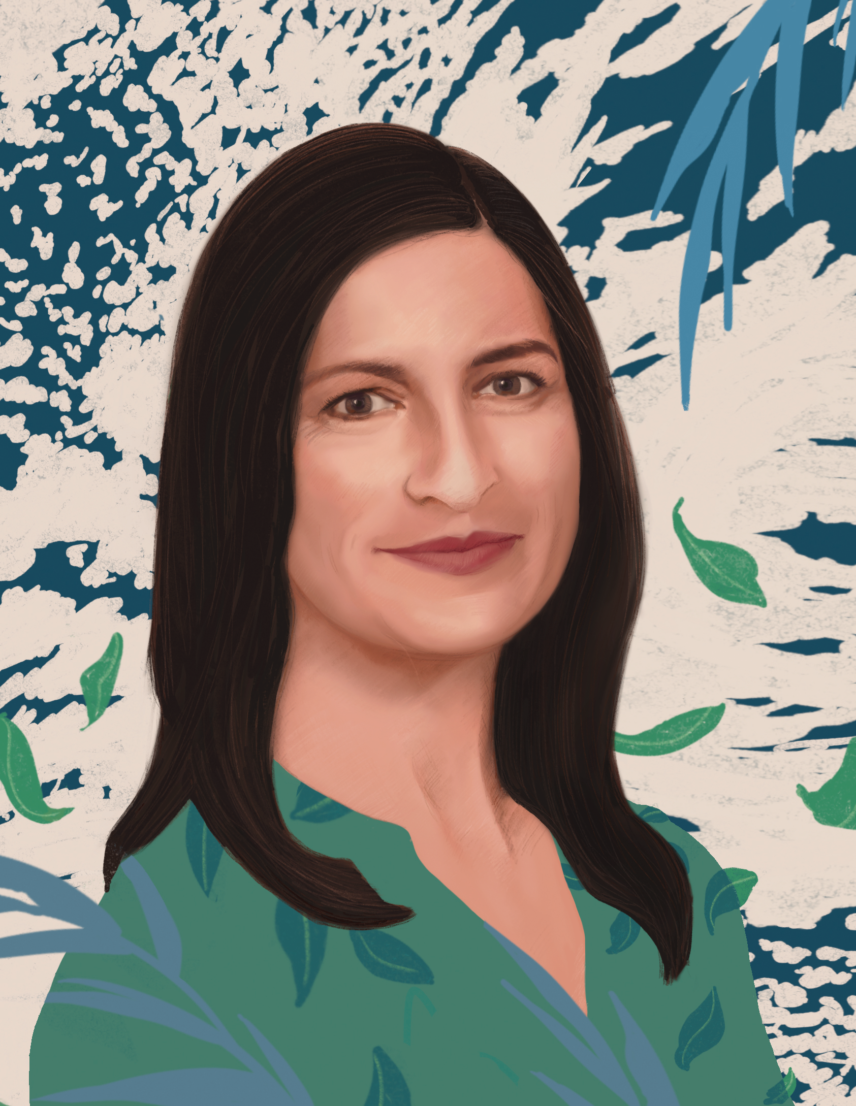Article begins
1. The complexity of the current climate crisis demands multiple disciplines working together to innovate creative solutions. Understanding diverse disciplinary approaches and worldviews can improve climate adaptation planning by identifying alternatives that can work for different people—scholars call these clumsy solutions for wicked problems.
2. Margaret Mead was one of the first anthropologists to be concerned about climate change and helped to organize a conference in 1975 with several atmospheric scientists for which she wrote:
3. Issues of scale can be tricky in interdisciplinary collaborations around climate change. How do anthropologists connect the community scale to that of atmospheric chemistry or planetary teleconnections? Hint: people produce the chemicals that alter the atmosphere and are affected by the meteorological processes that extend between continents. We can work with that!
4. Meteorologists and climatologists struggle to collect data on the changing nature of extreme weather events under climate change because of the rarity of these events. Communities with whom anthropologists work often have a great deal of place-based knowledge including tracking changes and can supply information to complete missing data from physical observations. For example, people in Tuvalu, as elsewhere, have oral histories of droughts and drought impacts that can improve long-term rainfall records to better understand historical climate patterns.
5. Anthropologists can dig into the lived experiences of changing characteristics of extreme weather events, even providing details about this to meteorologists who can then ask new questions of their own data. For example, people who are affected by hurricane storm surges can provide insight that improves surge modeling and in turn improves surge forecasts that people can use to make better decisions.
6. Different disciplines have different meanings for the same terms. “Vulnerability” may mean a simplified calculation of exposure and sensitivity or it may be an opportunity for anthropologists to use a term that is familiar to other disciplines and then sneak in deeper meaning about who is exposed to a hazard and why, who is sensitive to a hazard and why. Using common terminology as a Trojan horse means expanding how other disciplines think about certain processes by infusing more nuance and deeper understandings from ethnographic perspectives.
7. We need intercultural collaborations for climate solutions as well as interdisciplinary ones. Anthropologists are well positioned to help people from different cultural backgrounds and knowledge systems build relationships of trust as the bedrock for these collaborations, recognizing that “If we are to develop truly transformative and innovative solutions to the problems of adapting to a changing climate, we must embrace all ways of knowing, rather than restricting the potential solutions and paying an opportunity cost due to a lack of diversity of thought” (National Research Council, 2002).
8. Our disciplinary bread and butter are understanding various cultural ways of knowing and being, so we are positioned to offer alternatives to mainstream political economic systems. How about thinking in relational terms instead of transactional ones, so that we focus on the relationships between people and our environments in ways that better reflect the interconnectivity of life?
9. Youth and early career scientists are increasingly concerned about addressing the climate crisis in ways that will improve their own generation’s future. If you are already an anthropologist working on climate change solutions, reach out to your local schools, libraries, or other places and engage with these eager and inspiring minds!
10. Extreme weather and climate change are causing disasters around the planet. Researchers who study the roots and aftermath of these disasters can practice compassion that is informed by rigorous, interdisciplinary collaboration (see for example, the Society for Applied Anthropology’s Risk and Disasters Topical Interest Group, the Culture and Action Disaster Network, and Rising Voices: Climate Resilience through Indigenous and Earth Sciences).

Further reading
The AAA Global Climate Change Task Force submitted their final report to the AAA Executive Board in May 2014 and it was approved in December 2014. The Statement on Humanity and Climate Change is also available as is a 2017 brochure (PDF) about the role of anthropology in climate change research.
Mead, Margaret, Kellogg, W. W. (William Welch). 1980. “The Atmosphere: Endangered and Endangering.” Tunbridge Wells: Castle House Publications Ltd.
Wildcat, Daniel. 2009. Red Alert! Saving the Planet with Indigenous Knowledge. Golden, CO. Fulcrum Publishing.
Whyte, Kyle. 2018. “What do Indigenous knowledges do for Indigenous peoples?” In Traditional Ecological Knowledge: Learning from Indigenous Methods for Environmental, Sustainability, edited by Melissa K. Nelson and Daniel Shilling, 1–20. Cambridge and New York: Cambridge University Press.
National Research Council. 2002. Diversity in Engineering: Managing the Workforce of the Future. Washington, DC: The National Academies Press.
Lazrus, Heather. 2015. “Risk Perception and Climate Adaptation in Tuvalu: A Combined Cultural Theory and Traditional Knowledge Approach.” Human Organization, 74(1). https://doi.org/10.17730/humo.74.1.q0667716284749m8
Morss, Rebecca, E., Julie L. Demuth, Heather Lazrus, Leslie Palen, C. Michael Barton, Christopher A. Davis, Chris Snyder, et al. 2017. Hazardous Weather Prediction and Communication in the Modern Information Environment. Bulletin of The American Meteorological Society, 98: 2653–2674. https://doi.org/10.1175/BAMS-D-16-0058.1
Morss, Rebecca, E., Heather Lazrus, and Julie L. Demuth. 2018. “The ‘Inter’ Within Interdisciplinary Research: Strategies for Building Integration Across Fields.” Risk Analysis. https://doi.org/10.1111/risa.13246

